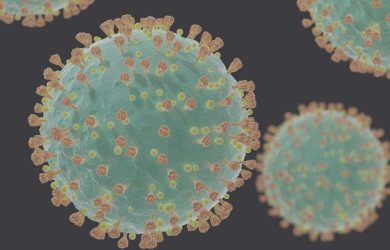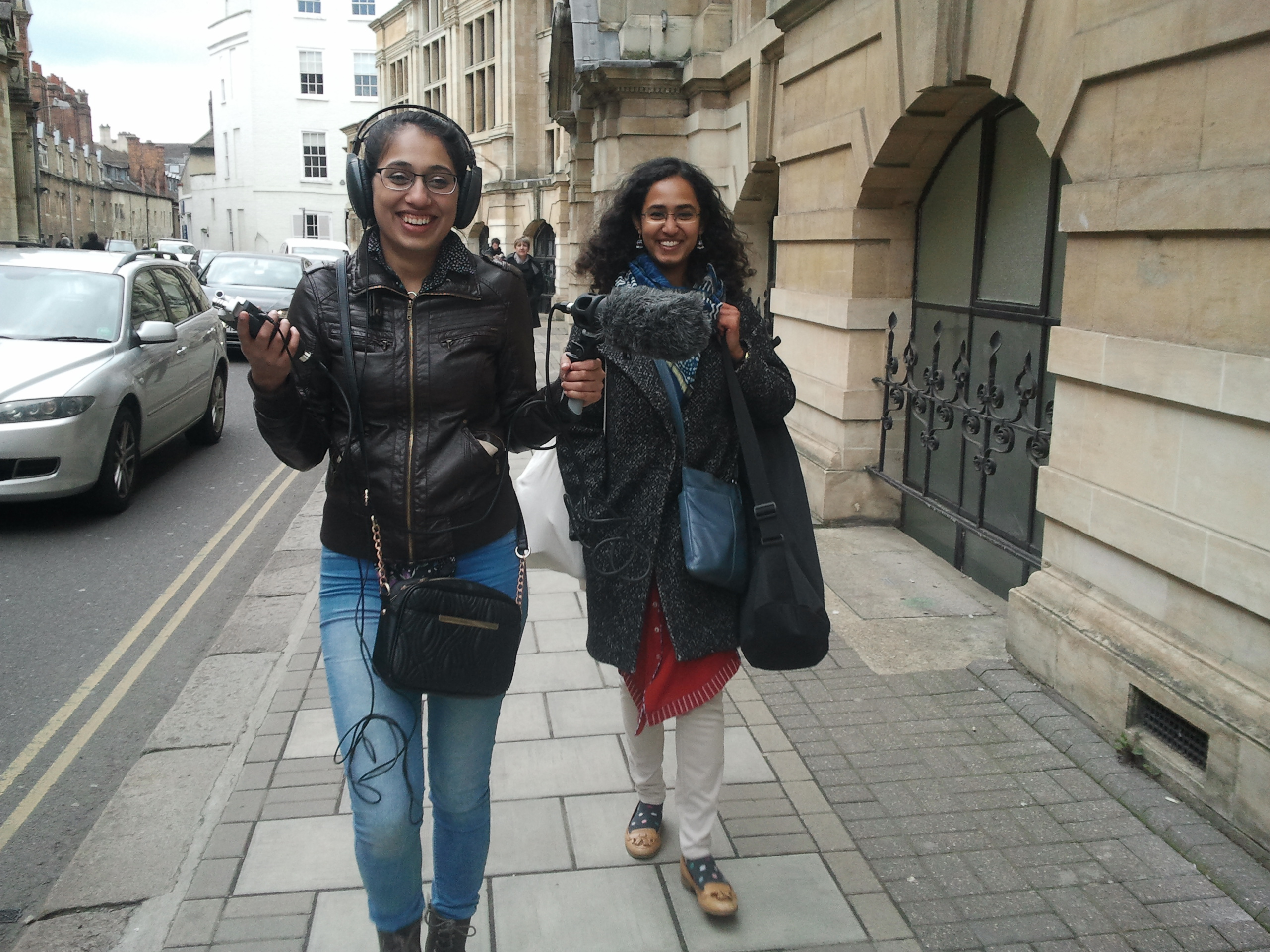
Why the Gates Cambridge's Learning for Purpose programme is a key part of the Gates experience.
The Learning for Purpose programme focuses on transferable skills which are useful across academic fields. Scholars will learn something that is useful in whatever they do. It is something which is quite unique to Gates and we think it gives the scholarship a lot of added value.
Shraddha Kaur
When Nikolas Oktaba signed up for a video workshop earlier this year he was keen to learn the kind of skills that would help him meet his ambition to take his research on sexuality in the ancient world to a wider audience.
The one-day workshop, run by the Gates Cambridge Scholars’ Council’s Learning for Purpose programme, saw him and his team putting together a talk show called “Awkward Questions with Paolo” which the team may now turn into a web series.
In the show, fellow Scholar Paulo Savaget [2015] asks Nikolas [2015] for relationship advice which he responds to in the manner of an ancient Greek. The film went down well with the workshop leaders and with scholars. Some are already calling Nikolas “the David Attenborough of sexuality”.
“The video workshop was the perfect launchpad for me into an exciting new way of communicating my research,” he says. “The Learning for Purpose programme is a key part of the Gates experience and one of the reasons the scholarship is so appealing.”
The programme was established by Tara Cookson [2011], who led a dedicated working group and presented the case for financing the programme to the Trust. From 2014-2015 Tara and her team built strong foundations for the scholar-driven programme, piloting a series of highly successful workshops. These included training in public speaking with TEDGlobal's speaker coach, a two-day deep-dive into crafting authentic leadership and public engagement with the award-winning The Op-Ed Project, which taught Scholars to craft opinion editorials from their research.
In January 2015 Victor Roy [2012] and Andrea Cabrero Vilatela [2011] took over as directors from Tara. In consultation with scholars, Andrea and Victor pitched a new name and structure for the programme to the Gates Cambridge Trust in April 2015, changing the name from professional development to Learning for Purpose. “We wanted to brand it around the idea that Gates Cambridge is truly a learning community with a purpose," says Andrea.
Under the new structure, the programme was divided into three areas: personalised learning; workshops with internal and external facilitators; and an online library and website with articles and advice.
Personalised learning includes a ‘brain trust’ which allows scholars who are facing a particular challenge to choose five other scholars to brainstorm a solution for an hour. “It means you have the brains of five people who can help you think things through,” says Andrea. Sometimes scholars suggest the five people they want, but LfP can also make suggestions. Personalised learning also includes skills sharing. One scholar, for instance, shared her knowledge of using citation software with others who needed it.
There are five themes in the Learning for Purpose programme: sharing ideas, driving change, catalysing remarkable teams, reflection and resilience and crafting and creativity. Workshops are crafted around these and scholars can also suggest ideas. Recent workshop themes have included improvisation, creative writing and film techniques. The next one is on photography.
In April Shraddha Kaur [2015] and Kerstin Goepfrich [2013] took over from Andrea and Victor. Shraddha says she heard about the programme in her interview for the Gates Cambridge Scholarship and came along to one of the programme’s regular open meetings about it in January where scholars have an opportunity to shape future events. She took part in the improvisation workshop and wanted to become more involved. She helped out with spreading the word about the film workshop, proposed the photography workshop and is now fully on board as a co-director.
She says her and Kerstin’s plans include promoting the programme better around scholars and alumni, for instance, through a Gates Cambridge film on what LfP is. Learning for Purpose will also run a session at the Gates Cambridge Biennial event in July, organised by Tara, and is also working with the Gates Cambridge Scholars’ Council on a living project called ‘Why you do what you do’ where scholars are asked what they do and why.
Shraddha says: “The Learning for Purpose programme focuses on transferable skills which are useful across academic fields. Scholars will learn something that is useful in whatever they do. It is something which is quite unique to Gates and we think it gives the scholarship a lot of added value.”
*For more information about Learning for Purpose click here. The next workshop is on photography and takes place on 28th May.
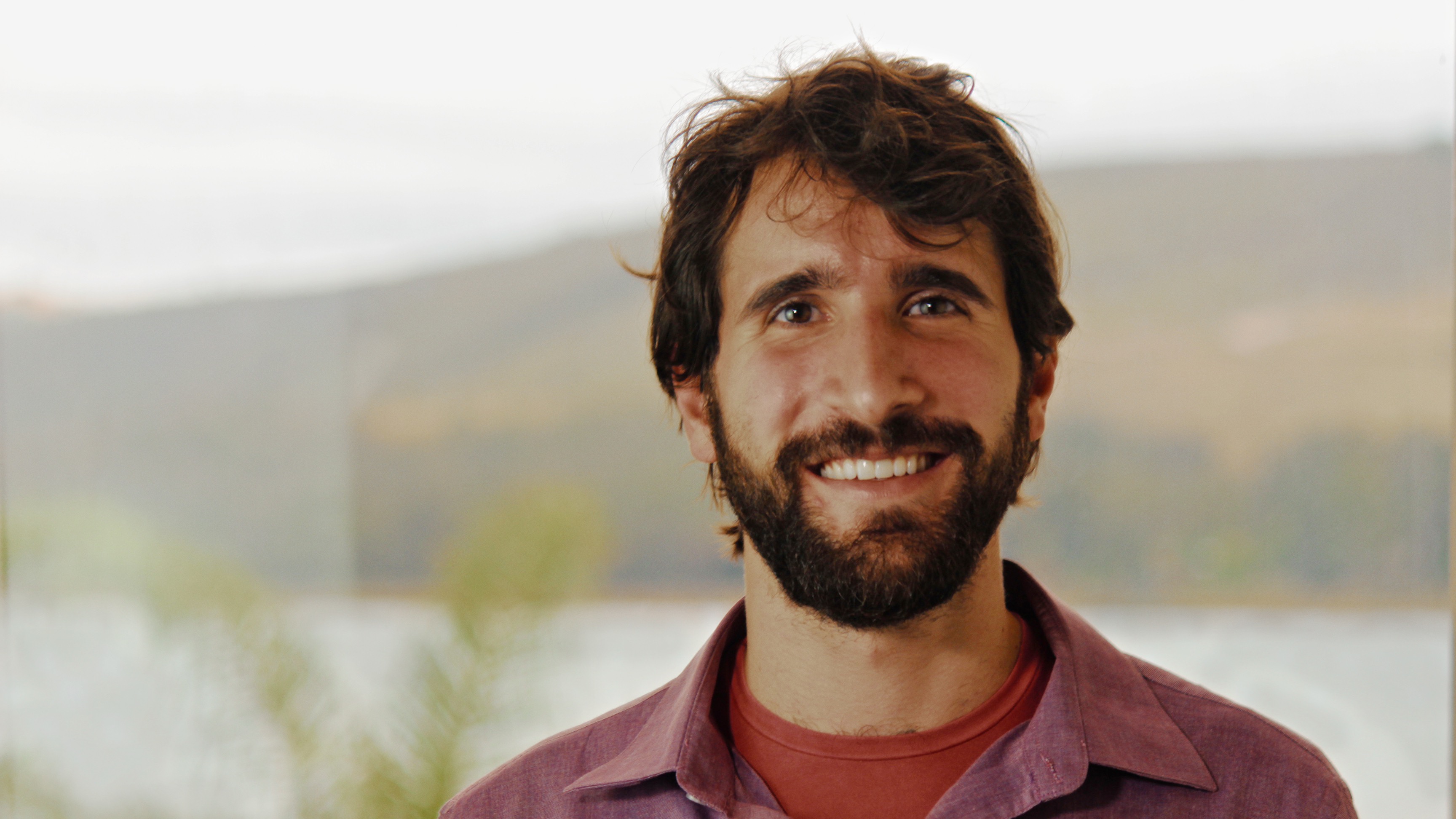
Paulo Savaget Nascimento
- Alumni
- Brazil
- 2015 PhD Engineering
- Hughes Hall
Paulo holds a joint appointment between the Department of Engineering Science and Saïd Business School. His primary fields of expertise are entrepreneurship, sustainable development, systems change, and innovation management.
The emphasis of his work is on transforming unjust systems through entrepreneurship. He formerly served as Postdoctoral Researcher at the Skoll Centre and as an Assistant Professor at Durham University. Outside academia, he worked as an entrepreneur and as a consultant to large companies, governments, and intergovernmental organisations. He received his PhD from the University of Cambridge, as a Gates Scholar.
He has been granted the IBM Business of Government Award, the Green Talents Award from the German Ministry of Science and Technology, and the Oldham Award from the University of Sussex, and has received multiple scholarships for his studies, such as from the Gates Trust, the UK Foreign and Commonwealth Office, and the Brazilian Council for Science and Technology.
Previous Education
University of Sussex
Universidade Federal do Rio de Janeiro

Nikolas Oktaba
- Alumni
- United States
- 2015 MPhil Classics
- Sidney Sussex College
Victor Roy
- Alumni
- United States
- 2009 MPhil Modern Society and Global Transformations
2012 PhD Sociology - King's College
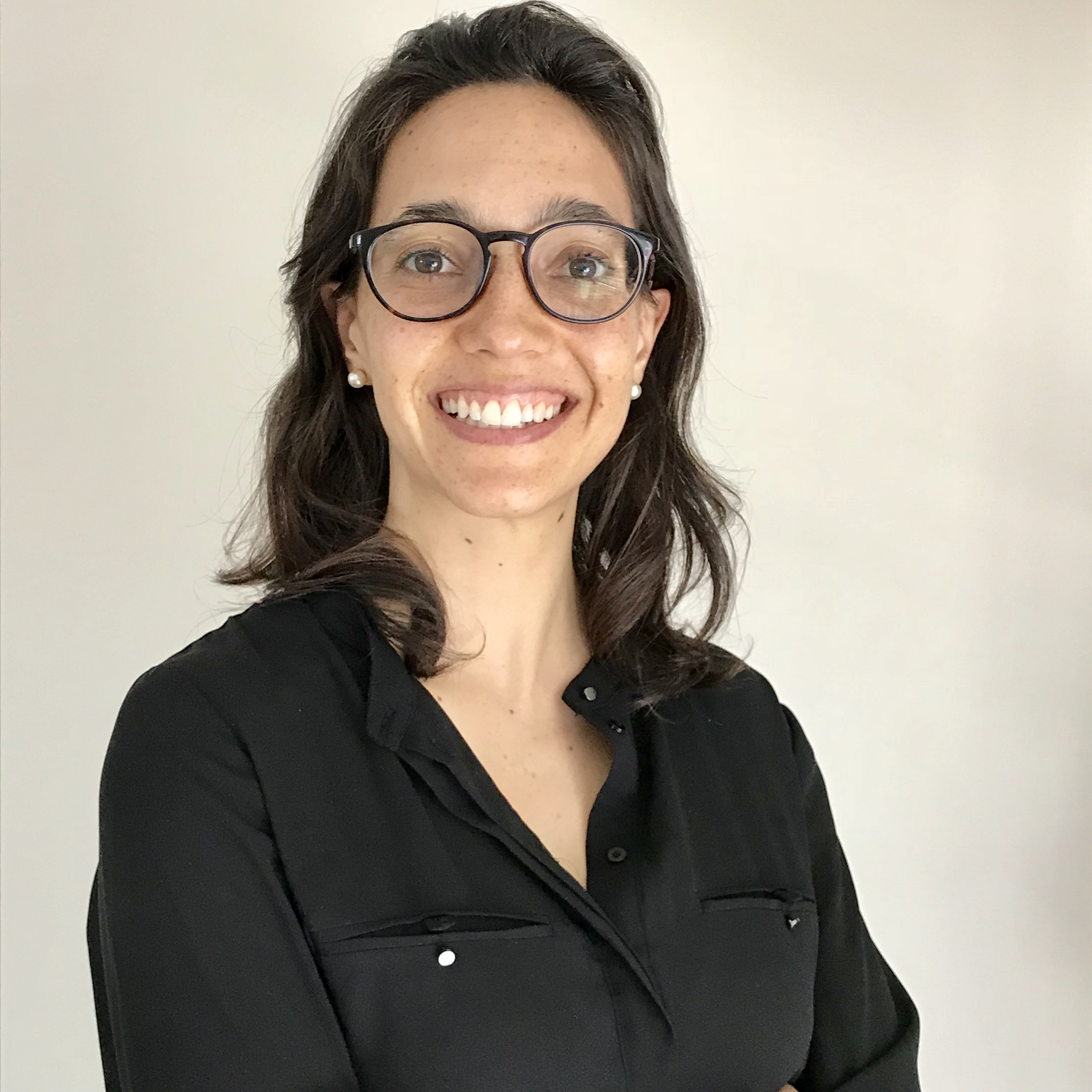
Andrea Cabrero Vilatela
- Alumni
- Mexico
- 2011 MPhil Micro & Nanotechnology
- Pembroke College

Shraddha Kaur
- Alumni
- India
- 2015 PhD Biological Sciences at MRC Brain Cognition Unit
- Christ's College
Previous Education
University of Dehli (Lady Shri Ram College)
Oxford University
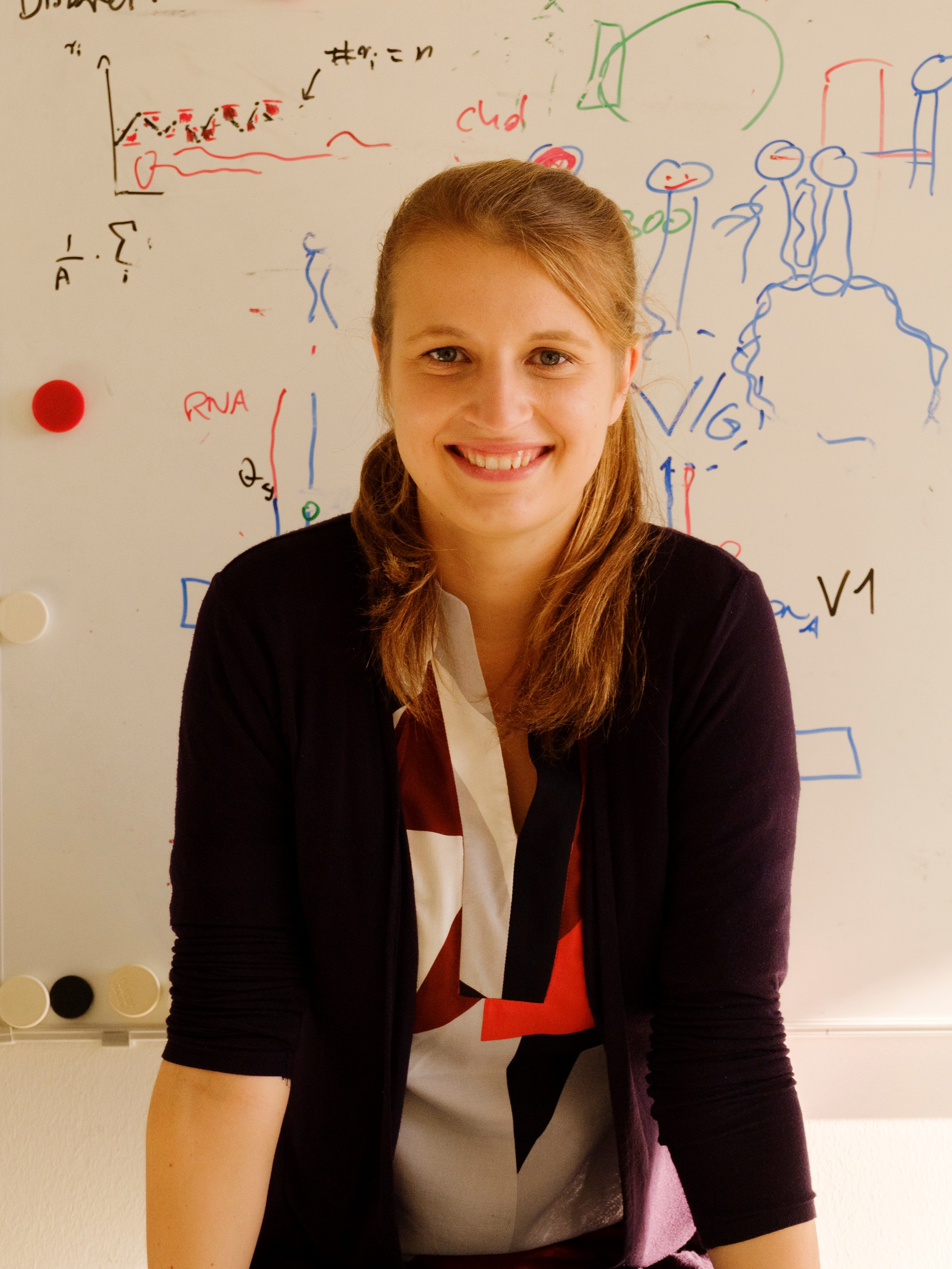
Kerstin Goepfrich
- Alumni
- Germany
- 2013 PhD Physics
- Corpus Christi College
My PhD at the Cavendish Laboratory, the „Home to DNA“, is about smart nano-objects folded out of DNA. I aim to use this so-called DNA origami to create functional molecular machines, inter alia for drug delivery systems. I always found it fascinating how physics brought novel tools into biology and how these tools led to discoveries. Thus, I studied physics and molecular medicine in Erlangen, Germany. As a scientist, I wish to contribute to the controversial discourse on nanotechnology in politics, legislation and society - not to defend a field of science I am passionate about, but to achieve sensible regulations for our future. A student exchange with Zambia directed my interests towards the developing world. I co-founded AidReversed, a platform of ideas on how the Western world can learn from developing countries and how this can drive sustainable development. I am looking forward to be part of the Gates community to share ideas for a sustainable future and to take them forward!
Previous Education
University of Cambridge Physics, MPhil 2013
Friedrich-Alexander Universitat Erlangen Molecular Medicine, Core Corriculum 2012
Friedrich-Alexander Universitat Erlangen Physics, Bachelor of Science 2012
Links
https://goepfrichgroup.de
https://www.linkedin.com/in/kerstin-g%C3%B6pfrich-51257a8a











